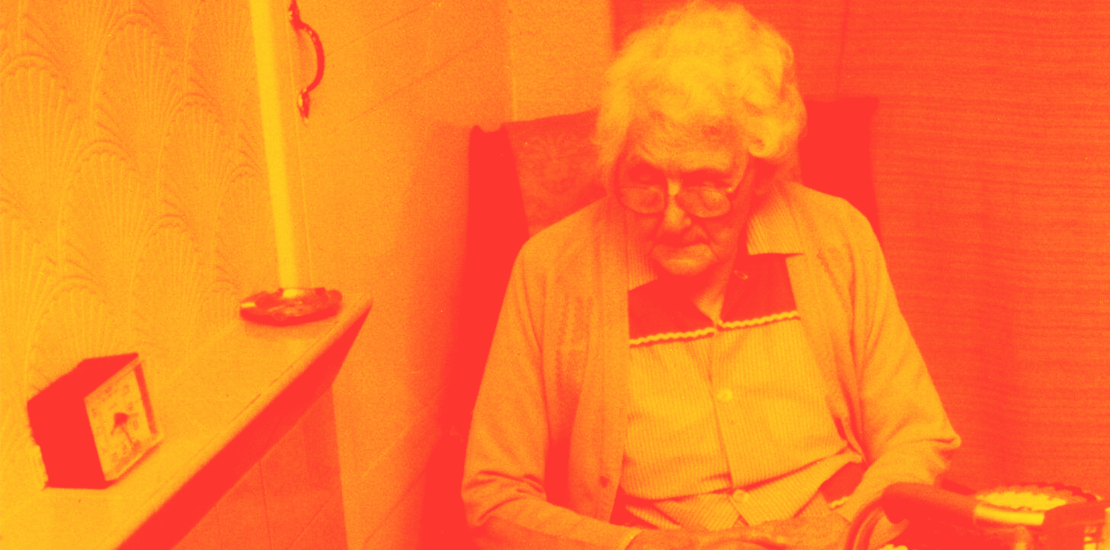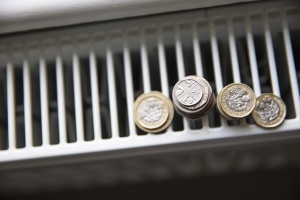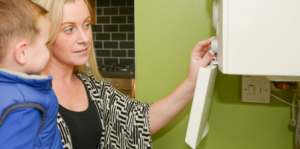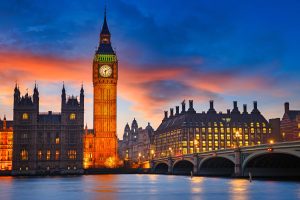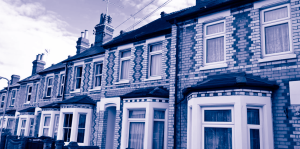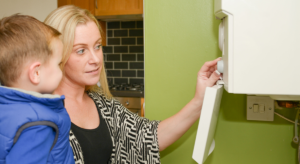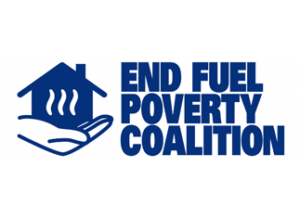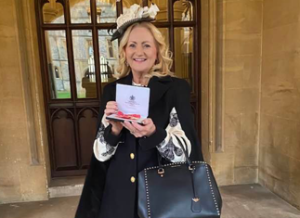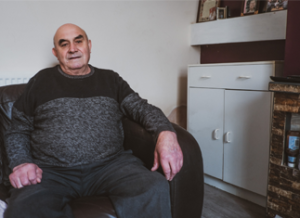Contact: Anna Cook, Head of Communications (anna.cook@nea.org.uk) Mobile: 07884 371913
New report by National Energy Action (NEA) and Energy Action Scotland sets out how to achieve a fair and affordable transition to net zero for fuel poor households
- Charities warn recent broken manifesto promise means the poorest households, living in least efficient homes are set to miss out on up to £750 a year cut to their energy bills
- The report also finds that fuel poor households must receive full upfront grants to decarbonise their homes through improving energy efficiency and transitioning to clean heating. Without this support, the report finds that the Government risks failing to meet fuel poverty targets, reach net zero or ‘level up’ some of the most disadvantaged areas
- New polling shows action for fuel poor households supported by 8 out of 10 British adults
A new report published today by fuel poverty charities National Energy Action (NEA) and Energy Action Scotland (EAS) sets out how to achieve a fair and affordable transition to net zero for fuel poor households. Matt Copeland, Head of Policy and Public Affairs at National Energy Action (NEA) said:
“Our report shows that goals to end fuel poverty and reach Net Zero carbon emissions are deeply intertwined. We cannot eliminate our carbon emissions without upgrading the least efficient homes, which are disproportionately occupied by those on the lowest incomes. Our latest polling shows that 8 out of 10 (79%) British adults also believe that the UK is unlikely to reach net zero without financial support for fuel poor households and two thirds (66%) think it is important that the transition does not increase the cost of living for the poorest households, even if that means the Government providing additional financial support”.
The report follows the UK Government publishing its long-awaited Net Zero and Heat and Buildings strategies, which set out the funding for decarbonising our homes over the next three years. NEA warns that investment for the poorest households is less than half of the funding pledged within the Government’s 2019 manifesto for those living in the least efficient and most polluting homes. The charities say these households are set to miss out on up to £750 a year cut to their bills. The research also found significant barriers to achieving the benefits of reaching net zero. In particular, that the upfront costs of low-carbon technologies are a barrier to fuel poor households decarbonising their heating alongside a lack of clarity on the medium- and long-term future of energy efficiency and clean heat schemes.
Copeland continues:
“Our research has found that there are significant barriers to poorest households benefiting from the move to net zero. The poorest households do not have the money to invest in the technologies that will reduce their carbon emissions, and while the strategies to meet net zero across the UK set an ambition to ensure that affordability is central, much more must be done to achieve this. To end the suffering of fuel poor households winter after winter, there must be significant sustained investment in levelling-up homes. Without it, the litmus test of a fair transition will have been failed, and there will be a significant risk of leaving the poorest households behind.”
Frazer Scott, Director of Energy Action Scotland (EAS) and co-author of the report concludes:
“In Scotland fuel poverty affects more than 1 in 4 households and is rising. Eliminating fuel poverty must be the priority. By doing this we save lives, reduce costs to our national health service and when done well, reduce our carbon emissions. Zero emissions-first programmes have the potential to increase inequalities and we must ensure that this cannot happen. There is huge potential to transform the lives of vulnerable people, people on low incomes, people with chaotic and challenging lives but this needs to be targeted, inclusive, proactive and fair.”
ENDS
Notes to editors
- NEA works across England, Wales and Northern Ireland to ensure that everyone in the UK can afford to live in a warm, dry home. For more information visit www.nea.org.uk.
- Energy Action Scotland works in Scotland to develop and promote effective solutions to the problem of cold, damp and expensive to heat homes Further info at www.eas.org.uk.
- The new UK Fuel Poverty Monitor can be accessed HERE
- The report draws on insight from over 120 unique organisations across the UK that are on the frontline of addressing fuel poverty. It also interviewed 10 key stakeholders as well as households that NEA has recently helped to decarbonise their homes. It finds that there were barriers across 4 key areas of decarbonisation that are currently stopping fuel poor households receiving an average benefit of £223 per year and costing the NHS more than £1bn/year due to bad health because of cold homes.
- The four areas that represent significant barriers to fuel poor households decarbonising are:
- Financial barriers (the unaffordability of up front and ongoing costs)
- Physical barriers, including poor housing and the need for better connections to the electricity grid
- The lack of advice to help households decarbonise their homes effectively
- Policy and regulatory barriers
- In total 96% of CfE respondents agreed that the upfront costs of low-carbon technologies are a barrier to fuel poor households decarbonising their heating and 85% agreed that a lack of clarity on the medium- and long-term future of energy efficiency and clean heat schemes is a barrier to fuel poor homes decarbonising their heating. To overcome these barriers, the report recommends that:
- There must be adequate funding to make sufficient progress decarbonising fuel poor households through energy efficiency upgrades by 2025. This includes an additional £1.4bn in England, £325m in Wales, £522m in Scotland and £440m in Northern Ireland to 2025.
- Grants to help decarbonise fuel poor homes should also cover the whole costs of upgrades, including those that are ancillary such as rewiring.
- The UK Government should look to reduce the cost of electricity by moving policy costs such as the Renewable Obligation and Feed in Tariffs into general taxation. Any move to increase Treasury income to recuperate these costs should not increase the cost of gas for fuel poor households until at least 2030.
- All policies aimed at decarbonising heat in homes should be attached to a ‘fabric first’ philosophy to ensure that a good standard of energy efficiency is achieved before or when low-carbon heating is installed.
- The UK Government should commit to keeping a long-term price protection mechanism in place to ensure policy costs on bills continue to be passed through in a transparent and fair manner.
- In a recent poll prepared by YouGov on behalf of NEA to gather a nationally and politically representative view on a fair and affordable transition to net zero:
- 79% of British adults said that it is not likely that the UK can achieve net zero carbon emissions if the Government does not provide financial support to the poorest homeowners to make changes to decarbonise their homes.
- 66% of British Adults said it is more important that the UK transitions to net zero in a way that does not increase the cost of living for the poorest households, even if this means additional financial support from the Government.
- 74% of British adults said the government should provide support to everybody (52%) to switch to a green home heating system or that support should only be given to the poorest (22%) households only. 8% said The Government should provide financial support to the most polluting households only.
- 76% of British adults said the government should provide support to everybody (47%) to switch to a green home heating system or that support should only be given to the poorest (29%) households only. 7% said The Government should provide financial support to the most polluting households only.
- 48% of British adults said that the Government should pay the full cost of switching to a green home heating system for the poorest households
- 44% of British adults said that the Government should pay the full cost of making home improvements to make their home more energy efficient for the poorest households
- Please contact us to discuss potential case studies and for information about other organisations who would be able to provide accompanying quotes.
If you would like to opt out of mailing from NEA, please email press@nea.org.uk
Download the UK Fuel Poverty Monitor 2020-21


